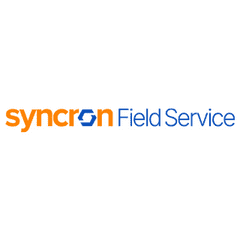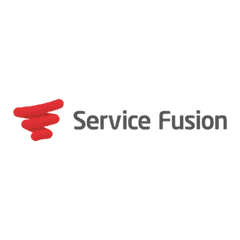- Free Version: Available for teams of up to 10
- Pricing: Premium plan $24/month (with free 30-day trial period)
- Platforms supported: Available on mobile app (iOS and Android) or a web-based software
Why use SafetyCulture?
SafetyCulture is a mobile-first, free field service management software that allows teams to digitize and automate processes and services in the field. The platform’s flexibility enables workers to perform versatile tasks under the broad umbrella of FSM.
Features:
- Utilize smart templates and checklists for deployment to field service workers and empower field service managers to monitor productivity and operational efficiency
- Track the progress of work orders and inspections in one secure cloud storage
- Maximize the geo-tagging feature to track and monitor field service workers in real-time
- Provide media attachments such as photos and videos in inspection and work order templates as proof of the job done and electronically complete reports with digital signatures
- Use the Analytics dashboard to leverage insights, especially when it comes to improving service times, assigning the right technicians and field service workers for the jobs, and more
Why use Fieldpoint?
Fieldpoint by Fieldpoint Service Applications, Inc. is a holistic software solution enabling field technicians to use the software’s mobile capabilities to monitor, perform, and record everyday work and let field service managers and customers know the progress of work orders, repairs, or any task.
Features:
- Online and offline data access capabilities via the mobile field service app
- Integration with existing business tools such as NetSuite, QuickBooks, and more
- Cloud service or on-premise software deployment based on your licensing model
- Free Version: None
- Pricing: Schedule a demo for the pricing details
- Platforms supported: Available on Web, iOS, and Android
Why use Freshdesk?
Freshdesk by Freshworks Inc. provides the tools that organizations need to ensure and improve the efficiency of their field service operations. This software enhances speed, accuracy, and productivity toward customer trust and satisfaction.
Features:
- Smart ticketing system used in prioritizing, categorizing, assigning, and automating support tickets
- Scheduling Dashboard for appointment, workload, and emergency management and response
- Intelligent bots for customer engagement
- Free Version: Available
- Pricing: Free for up to 10 users, while the Growth plan starts at $15/user/month on an annual billing
- Platforms supported: Available on Web, iOS, and Android
Why use Comarch FSM?
Mainly focusing on automating mobile workforce and equipment management, Comarch FSM empowers field service providers to increase workers’ efficiency and Service Level Agreement (SLA) compliance.
Features:
- Effective scheduling and routing capabilities
- Work order, inventory, and dispatch management
- Corrective, preventive, and predictive maintenance solutions
- Free Version: None
- Pricing: Starts at $1000 per user as a one-time payment
- Platforms supported: Available on Web, iOS, and Android
Why use Infor?
Providing service-focused functionality, Infor lets organizations empower field technicians and other workers to take charge of their individual tasks with rich data, easy access to customer information and equipment details, and quotation process assistance.
Features:
- Work order and service contract management
- Accurate scheduling and dispatch
- Control warranty and claims management
- Free Version: None
- Pricing: Details unavailable, contact for a sales quote
- Platforms supported: Available on Web, iOS, and Android
Why use Syncron Field Service?
Used in optimizing field service management, mobilizing field technicians, and improving the overall service experience, Syncron Field Service provides businesses with reliable infrastructure, routine task automation, and a streamlined process for support request monitoring.
Features:
- Simple access to self-service capabilities, providing real-time visibility on service activities
- Accessible and searchable knowledge base
- Service task time-tracking for better labor cost analysis
- Free Version: None
- Pricing: Details unavailable, contact for pricing information
- Platforms supported: Available on Web and Mobile app
Why use OnthegO?
OntheGo by Girnar NewTel Solutions Pvt. Ltd. is an award-winning field service management software, proven to help organizations improve their field service operations. This service provider also offers a 30-day free trial, complete with quick onboarding and customized solution setup.
Features:
- Location tracking and distance
- Configurable work forms
- Attendance, leave, and scheduling management
- Free Version: None
- Pricing: Starts at $4.99/user/month on an annual billing
- Platforms supported: Available on Web, iOS, and Android
Why use Odoo Field Service?
Focused on making tools that organizations use in performing field services more mobile and intuitive, Odoo Field Service is a free online field service report software that offers a wide array of features and tool integrations to improve not just customer relationships but also workflow management.
Features:
- Invoicing, planning, and multi-project management
- Seamless integration with other Odoo apps for business operations
- Work time tracker and route planner
- Free Version: None
- Pricing: Free for unlimited users
- Platforms supported: Available on Web, iOS, and Android
Why use Service Fusion?
Allowing organizations to gain full visibility in managing their FSM tasks, Service Fusion is trusted by thousands of contractors as a solution for a centralized system for customer management, technician scheduling, and costing processes.
Features:
- Easy scheduling and dispatching
- SMS notifications for real-time communication
- Mobile app for field technicians
- Free Version: None
- Pricing: $126 for the Starter plan, while $186 for the Plus plan and $339 for the Pro plan, all per month for unlimited users billed annually
- Platforms supported: Available on Web, iOS, and Android
Why use SHEQSY?
SHEQSY by SafetyCulture is a safety-focused field service management software that aims to protect your lone workers and help you maintain lone work legislation via an intuitive mobile app that feeds real-time data for your peace of mind.
Features:
- Access the real-time location and countdown timer of your field service technicians who are working alone on-site to ensure their safety
- Activate a duress alert without opening the mobile app if your lone worker needs assistance
- 24/7 monitoring
- Free Version: Available
- Pricing: Premium plan $10/month (30-day free trial for unlimited users)
- Platforms supported: Available on mobile app (iOS and Android) or a web-based software
What is Field Service Management Software?
A field service management (FSM) software enables businesses to effectively control all resources necessary to carry out various tasks involved in the overall FSM. Such a technological solution helps field service managers, technicians, and other field service workers perform tasks such as work order management, job scheduling, employee training, and dispatch management, to name a few.
What is Field Service Management (FSM)?
Field Service Management (FSM) is a system that enables companies to manage their field service operations more effectively. This can include everything from sales and marketing to customer service and product delivery. It allows businesses to optimize and streamline processes, connect with field service technicians in real time, and track performance metrics.
Why Use an FSM Software?
To manage the efficiency and safety of a company’s workers and equipment while serving customers or clients in the field, FSM software solutions are utilized. Commonly, industries that highly use field service management software include healthcare, oil and gas, retail, and facilities management, among others.
- It can help you improve your customer service. With real-time updates and GPS tracking, you can ensure that your team is always where they are supposed to be and that customers are getting the best possible service.
- With accurate time tracking and automated field service reporting, you can streamline your operations and ensure that everyone is working as efficiently as possible.
- It can help you improve your team’s productivity. By automating tasks and providing updates in real-time, you can help your team work smarter, not harder.
Field service management software, paired with comprehensive product management software, can help businesses increase their productivity, efficiency, and organization.
What are the 5 Components of Field Service Management?
FSM helps companies manage their field service operations, which can include the following components:
1. Field Service Contract Management
Field service contract management is the process of ensuring that service level agreements (SLAs) and any other contractual obligations are being complied with. This also helps ensure that service contracts are in place and up-to-date.
2. Inventory Management
Companies need to have an efficient inventory management system to properly control and manage the spare parts, tools, and equipment required for their field service operations.
3. Work Order Management
Work order management is the process of tracking and managing customer service requests from initial contact through to invoicing.
4. Field Service Dispatch management
Dispatch management is the process of assigning field technicians to customer service requests in an efficient manner.
5. Field Service Scheduling and Routing
Scheduling and routing is the process of planning and coordinating the schedules and routes of field technicians to optimize efficiency.
Features
Some of the major field service management software features you must consider in choosing the best solution for your needs include the following:
- Interactive digital templates – With interactive, digital templates, your team can capture rich data through notes and image attachments. They can also save crucial time by eliminating manual data re-entry.
- App integration – Integrate your field service management software with your existing software stack and other Business Intelligence tools.
- Performance tracking – Track how your team members do their tasks more efficiently. Highlight information that lets you see the amount of time spent in the field per worker and pinpoint areas for improvement.
- Report generation – Immediately generate digital reports upon completion of every field service work—minus the extra workflow.
- Client support – Field service management software solutions must provide top-of-the-line support for any questions and concerns regarding the software and how it can further improve business processes.
Featured Industry Leader
Learn how Infravision, a global leader in aerial power line construction, ensures not just business efficiency but also worker safety and productivity through the help of SafetyCulture by SafetyCulture as a top field service management software.
“We’re able to ensure that we have a real direct link with our frontline workers and our customers, and it’s a two-way street. It’s about empowering our frontline workers to be able to notify us of anything that’s happening out there in the field or in the factory.” — Paul Crawford, Director of Operations










